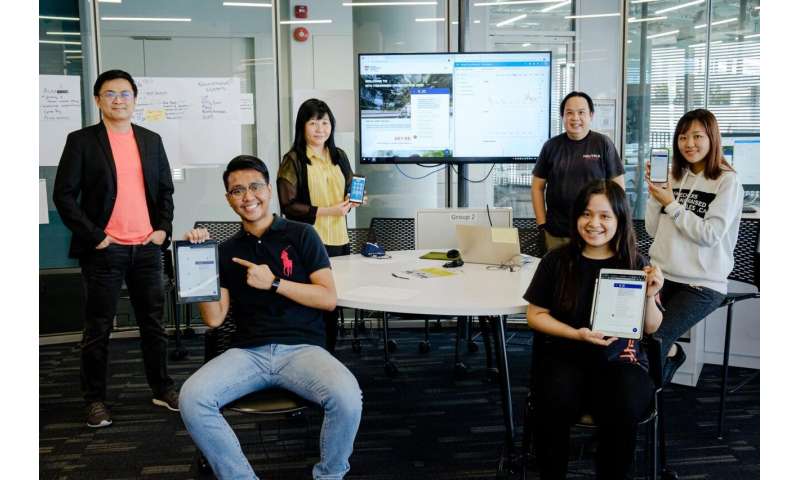A rapid-response chatbot to address freshmen queries
Source: Nanyang Technological University
 Nanyang Technological University, Singapore (NTU Singapore) has rolled out a new virtual assistant powered by Google Cloud to help some 6,000 incoming freshmen transition to university life on the NTU Smart Campus.
Nanyang Technological University, Singapore (NTU Singapore) has rolled out a new virtual assistant powered by Google Cloud to help some 6,000 incoming freshmen transition to university life on the NTU Smart Campus.
Named Project Lyon 2.0, the virtual assistant chatbot complements the virtual Freshmen Orientation held online, which replaces the annual Freshman Orientation program due to the COVID-19 pandemic.
The project demonstrates the NTU Smart Campus vision to harness digital technology and tech-enabled solutions to support better learning and living experiences, the discovery of new knowledge, and the sustainability of resources.
Aimed at providing the newly matriculated students an easy-to-use mobile experience, the virtual assistant will help to direct them to the right resources that they need and to assist the university in the smooth running of onboarding activities.
Together with cloud consulting partner OniGroup, NTU's Centre for IT Services (CITS) worked with Google Cloud to program and 'train' the new chatbot to provide a better experience, which was developed with inputs from students.
Powered by Google Cloud's Mega Agent technology, the new chatbot has enhanced conversational flows, allowing it to hold a conversation similar to talking with a real person, which will help to drive a wider usage of the chatbot among the freshmen and other users in NTU.
Ms Tan Aik Na, Senior Vice President (Administration), NTU Singapore, said, "The chatbot is a great example of how the university's staff and students can work together synergistically to develop and deploy a robust technological solution on the NTU Smart Campus, which helps to ensure the safe onboarding of new students amidst the COVID-19 pandemic".
"During this challenging period where all activities are encouraged to go virtual, Project Lyon Chatbot is now a critical feature of the upcoming freshmen orientation, as part of the university's digitalisation efforts. Our students were guided and empowered to create a useful chatbot for their peers, and they also picked up valuable chatbot development skills in the process."
Mr Gary Lim, Public Sector—Education Lead, Google Cloud, Southeast Asia, said "NTU is the first education institution in Southeast Asia to use Google Cloud's Dialogflow Mega Agent, which was launched globally this year in February.
The Dialogflow Mega Agent can process up to 20,000 intents (queries), thereby providing students with a wider variety of relevant information related to freshmen, or any other topics that Lyon 2.0 will be used for in the future.
For instance, the new chatbot can address questions like "How to register for courses?" and "Can you show me the examination timetable?". It can also suggest suitable F&B options or help students navigate their way on campus, for example finding their way to their tutorial rooms or labs."
"Answering the myriad of questions that new students have can be tricky, especially in a time where physical interactions are limited," Mr Lim said. "With the ease of integration and the enhanced number of intents that the new agent is able to handle, we believe that the new chatbot will serve the needs of the NTU students, helping them take their first steps as a university student and to find their sense of belonging to NTU."
One of the key hurdles that the joint task force led by NTU had overcome was the chatbot's interactivity and ability to provide answers to a variety of topics and questions that the new students may have now or in the future.
Conventionally, a chatbot uses a single Artificial Intelligence (AI) agent to perform a query. But to create richer conversations, the Mega Agent can use up to 10 AI agents to handle queries, which was ideal for the digital channel that NTU was looking for to engage the freshmen.
The Project Lyon Chatbot has now been rolled out for the new batch of students who start their term in August 2020.
Training of the chatbot will continue, with an NTU team comprising of students from the Data Science and Artificial Intelligence Program and the Linguistics and Multilingual Studies. They will work to include more localized nuances of queries that may be asked by freshmen and to improve the accuracy of the chatbot in answering questions correctly.
| }
|